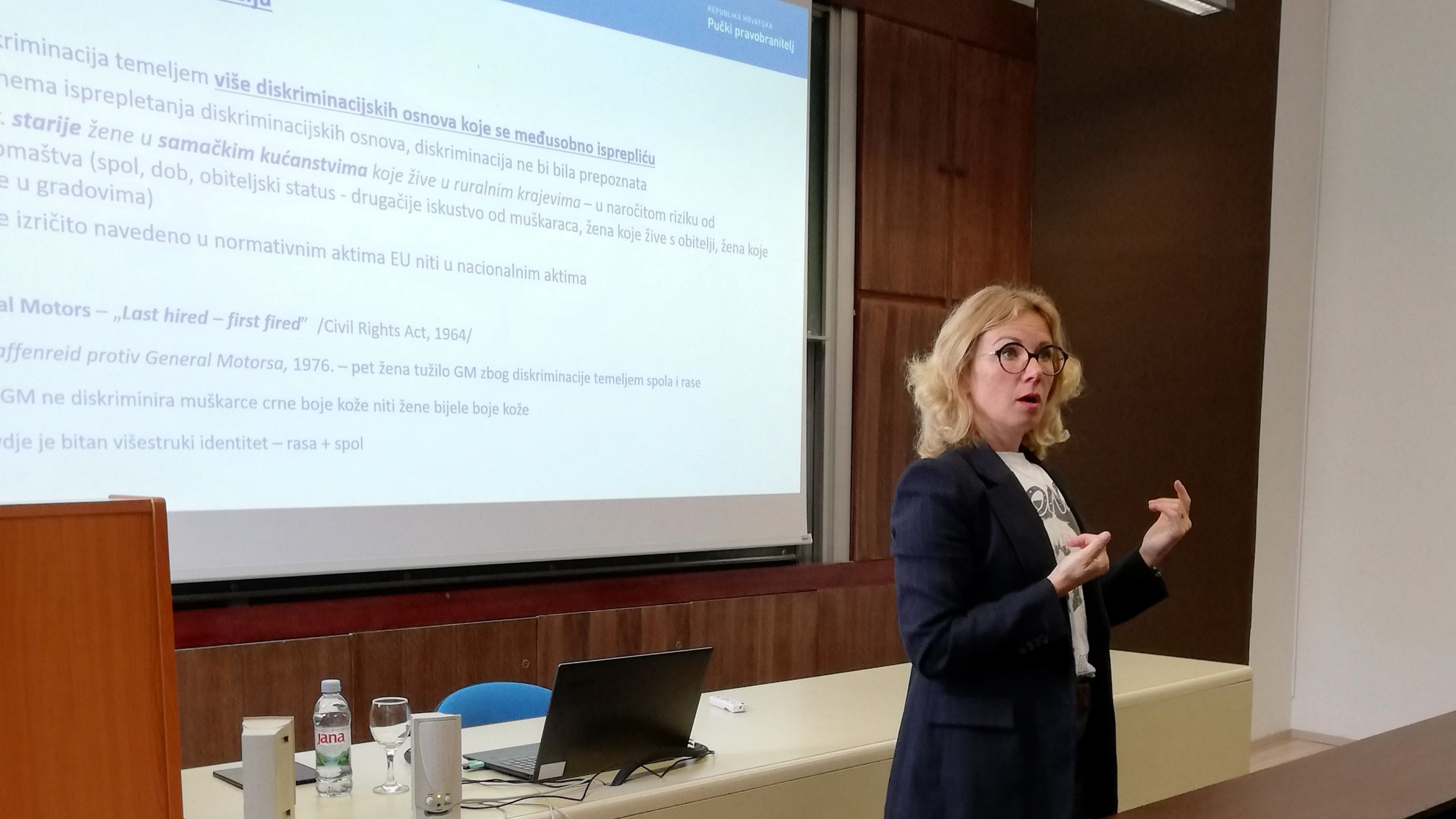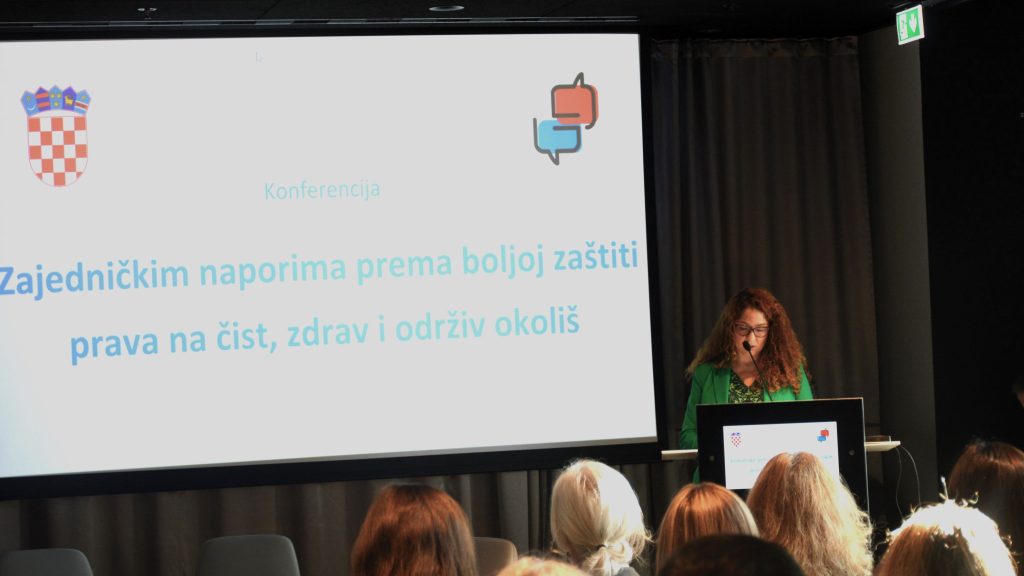Deputy Ombudswoman Tatjana Vlašić participated in a symposium on the implementation of housing support measures for victims of domestic violence, held on 13 May 2025 at the Aquarium of the Student Centre of the University of Rijeka, organized by the association SOS Rijeka – Centre for Nonviolence and Human Rights.
In a brief presentation of the institution’s mandate and methods of work, Deputy Vlašić emphasized that the right to housing is a fundamental human right. This right goes beyond mere shelter and includes the right to adequate housing, i.e., the right to live in personal safety, peace, and dignity. It also entails protection from unlawful evictions and is linked to access to safe drinking water, sanitation systems, and energy.
Furthermore, this right does not imply an obligation of the state to provide every person with a house or apartment, but rather a duty to design measures that support access to dignified housing—such as subsidies and benefits, infrastructure availability, and similar mechanisms—in a non-discriminatory manner, while also aiming to prevent homelessness.
Speaking about housing support for victims of domestic violence, Deputy Vlašić pointed out that such support can be provided under the Act on Housing Support in Assisted Areas for a period of up to two years, across the entire territory of the Republic of Croatia. However, certain conditions must be met: a final court ruling confirming domestic violence, the absence of another habitable property or sufficient means to secure a housing unit, and a recommendation from the competent regional office of the Croatian Social Work Institute on the need for housing support for the victim. After the initial two years, support can be extended for an additional two years if the reasons for the initial decision persist.
However, since these reasons often do not cease even after the additional two-year period, the Ombudswoman pointed out that such housing support should be available for as long as the circumstances that justified it continue. She also proposed enabling permanent housing solutions in dedicated residential facilities for victims of domestic violence who have previously been granted housing support.
During the symposium, the results of a study conducted by SOS RI were also presented, which analyzed the effectiveness of the implementation of housing support measures. In addition to Deputy Vlašić, the event brought together experts in social welfare, law, civil society organizations, academia, and representatives of public institutions, with the aim of fostering dialogue on challenges, institutional barriers, and opportunities to improve housing support for victims of violence.
Citizens also address the Ombudswoman regarding housing-related issues, which include high purchase and rental prices, an insufficient number and often poor condition of public rental housing units, lengthy procedures related to state-owned property—particularly in relation to housing support in assisted areas—difficulties in finding long-term rentals in tourist areas due to more profitable short-term rentals, as well as a general lack of knowledge about the rights and responsibilities of tenants and landlords, and inadequately regulated social housing.
Unfortunately, the current market situation, combined with the long-standing absence of a comprehensive housing policy, has most severely affected young people, retirees, families with multiple children, workers in precarious forms of employment, persons with disabilities, beneficiaries of international protection, foreign workers, and members of the Roma national minority. However, an increasing number of people outside socially vulnerable categories are also facing issues with housing affordability.
More on this topic is available in the Ombudswoman’s 2024 Annual Report





